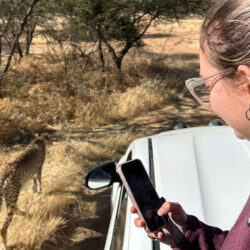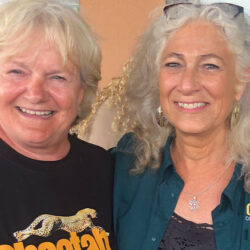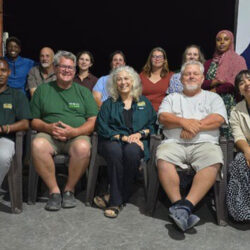Working Guest Blog – Eileen Flynn
-

- by Eileen Flynn September 18, 2017

Having participated in a few CCF fund raisers in San Francisco, when the opportunity presented itself I signed up to be a working guest. Now, I’ll admit – I really didn’t know much about CCF before I left. I had been trying to plan a year off and plans kept falling through, so I wasn’t able to really read all the material on the website. But, I trusted my friends who knew Dr. Laurie Marker and they said “it’s a great place… you should go!”
This may sound strange, but this blog will be mostly about the peripheral programs rather than the cheetah work. Why you ask? Because everyone knows CCF takes in cubs who have lost their parents, injured cheetahs that they patch up and re-wild and countless other things…it’s very well documented. But, there is SO much more to CCF than the cheetahs… things that also help with the success of overall landscape/ecosystem conservation.
After my arrival, I settled into my little round house (rondavel) and wandered back to the main campus for the orientation. I was given a tour of the main campus – it was even bigger than expected. Having been to a few animal conservation volunteer sites in Africa, I was expecting something small. Boy, was I in for a surprise! CCF is a huge campus with a café, a museum, a genetics lab (really wasn’t expecting that one), many ecology offices and a vet clinic. Plus, they have working guests, staff and interns so there are quite a few living quarters.
I soon immersed myself in whatever work I could find – I helped with center feed, meat prep, cheetah runs, enclosure cleaning, feeding the other cheetahs in the outer enclosures, taking PR photos to help promote the new Cheetah View Lodge, taking photos of the safaris, helping with the CCF booth at the Tourism expo and writing a few blog stories. If you finish your assigned duties…there is ALWAYS something to do at CCF… just ask people if they need help. There are so many projects going on at any given time… someone can always use a hand.
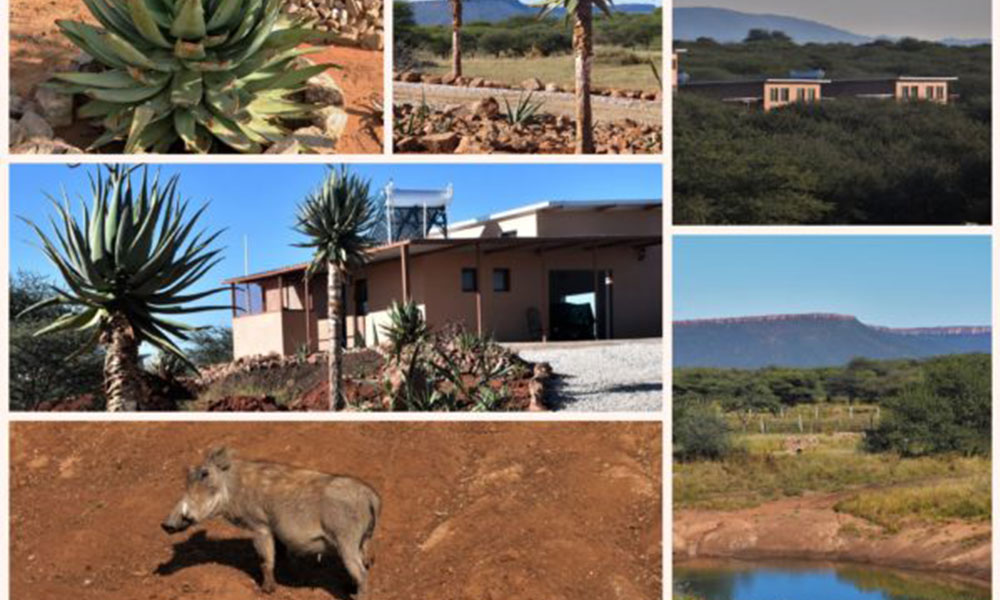
I had a chance to interview a few people from a University in Nebraska that were touring Namibian conservation groups. The one comment that seemed to resonate with most people I talked to is that “CCF really gets conservation”. They understand that there is more to saving a species than the animal itself…you need the cooperation of the community to help with the human-wildlife conflict management issues. In fact, on one feeding when I was riding with the cheetah team- I asked what college major would be most useful for conservation work. I was expecting something like “Wildlife, fisheries & biology”, “animal husbandry” or something like that… their answer really surprised me… ”Human Resources”! Thinking about all the interaction with the community – it does make sense, but it was still a surprising answer.
The thing I remember most vividly is how they use Kangals & Anatolian Shepherd dogs as Livestock Guarding Dogs to help protect a sheep or goat herd from the cheetahs. The dogs bond so strongly to the herd that they are fiercely protective. This has helped decrease the number of cheetah deaths due to farmers shooting them. I had the privilege on several occasions to help feed the puppies. They are such little adorable balls of fur – you want to pick them up and cuddle them but you can’t… they need to bond with their herd… not with humans.
Although, that didn’t stop me from having a favorite! He was always curious, the first one to waddle his way to the front, and the first one to start biting my pant leg (he never hurt them… it was just a handy chew toy). He is the sweetest ball of fur! One time, I had to take some puppy pics for a fund raiser and had to put one of my lenses on the ground… there he was! He was sniffing, licking and prodding the lens… trying to figure out how to eat this weird plastic toy… because for him… it was all about food!
So, when a farmer decides he wants to be part of the Livestock Guarding Dog Program they must send in an application and the farm will be visited as well. The farmer is provided with a puppy which is about 8-10 weeks old (with an agreement of annual dog checkups to ensure the dog is being well cared for) and the puppy is put in the pen to live with the herd to bond. CCF has a model farm with sheep and goats and a bunch of dogs for herding. The farmer can come out with Aramos (the head herder at CCF) as many times as needed to understand how the program works.
It’s that commitment to conservation that makes the program so successful. Plus, if it is clear the dog is not being treated properly, they reserve the right to take the dog back – a clause I really like!
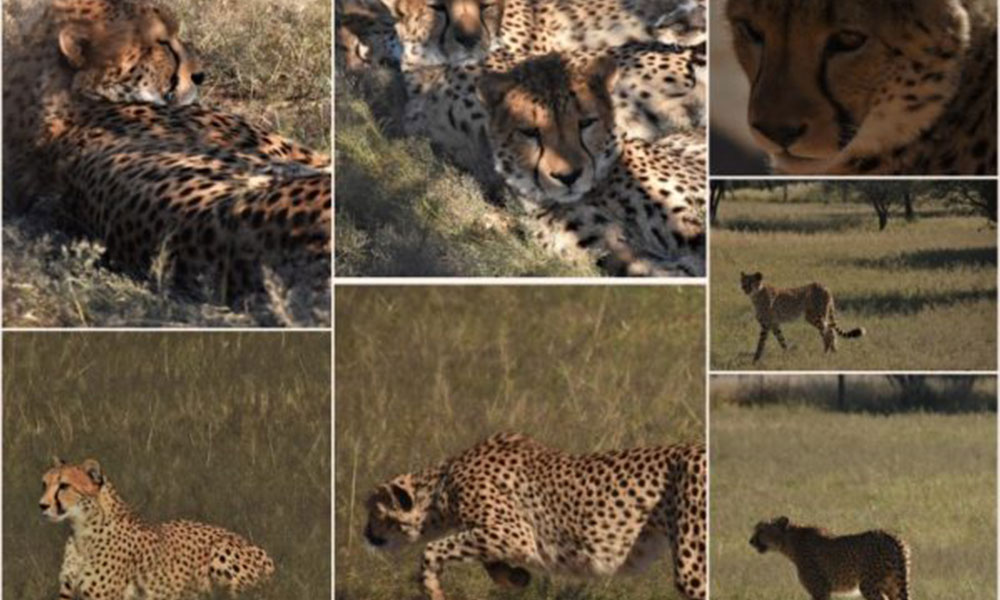
They also have ecology programs where camera trap data is reviewed to learn more about the various animals and their behavior patterns. There is a scat detection program using specially trained dogs that are trained to recognize cheetah scat. If a farmer is worried they have a predator on their property…the dogs can determine if it is a cheetah or another predator. The scat found is collected and the samples are taken back to the Genetics Lab for ID. It’s an amazing concerted effort between various groups and it works! And, with that many goats… there is plenty of goats milk which is used to make cheese, ice cream and fudge. These delicacies are sold in the café, sold in local stores and used to feed the staff. Nothing is wasted! Plus, there is a greenhouse on site where vegetables are grown for use in the café and to feed the staff! They really try to adhere to a sustainability model (which includes solar heated water and solar power). It’s truly an amazing place!!
But the last key to the success… the people! The people at CCF are an incredibly talented, dedicated, intelligent and fun-loving group. Whether you are 20 or 70, they make you feel welcome and treat you like family… but in a good way (?). If you have questions, they will help. They look out for each other and the BBQs the staff have away from the dining hall provides an opportunity to get to know each other on a different level while trying Oryx meat hot off the grill and sharing stories and a laugh… or listening to one of the interns amazing guitar playing. I look back on those nights with so much fondness – I do love those people… they are family now!
I had an amazing experience meeting the staff, helping with the cheetahs, seeing true conservation in action and having the time of my life.
If you are looking for a great way to give back to the cheetahs, learn something, meet some really amazing people and have some fun….come to CCF! You won’t regret any minute of it!
Related Reading
-
October 20, 2025
How Do You Outrun Extinction? -
October 17, 2025
Two CCF Trips – Eastern and Southern Africa

